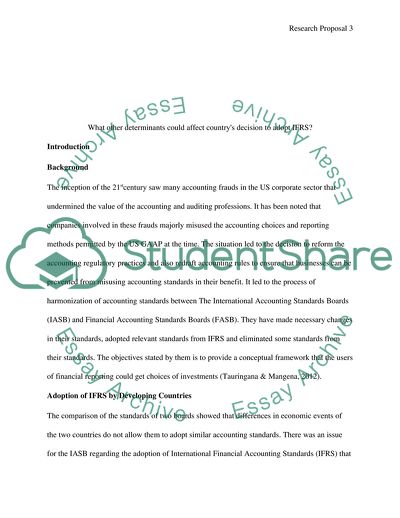Cite this document
(What other determinants could affect country's decision to adopt IFRS Research Proposal - 1, n.d.)
What other determinants could affect country's decision to adopt IFRS Research Proposal - 1. https://studentshare.org/finance-accounting/1863910-what-other-determinants-could-affect-countrys-decision-to-adopt-ifrs
What other determinants could affect country's decision to adopt IFRS Research Proposal - 1. https://studentshare.org/finance-accounting/1863910-what-other-determinants-could-affect-countrys-decision-to-adopt-ifrs
(What Other Determinants Could Affect country'S Decision to Adopt IFRS Research Proposal - 1)
What Other Determinants Could Affect country'S Decision to Adopt IFRS Research Proposal - 1. https://studentshare.org/finance-accounting/1863910-what-other-determinants-could-affect-countrys-decision-to-adopt-ifrs.
What Other Determinants Could Affect country'S Decision to Adopt IFRS Research Proposal - 1. https://studentshare.org/finance-accounting/1863910-what-other-determinants-could-affect-countrys-decision-to-adopt-ifrs.
“What Other Determinants Could Affect country'S Decision to Adopt IFRS Research Proposal - 1”. https://studentshare.org/finance-accounting/1863910-what-other-determinants-could-affect-countrys-decision-to-adopt-ifrs.


